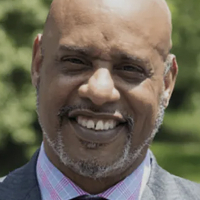Lawrenceville RICO Act Lawyer, Georgia
Sponsored Law Firm
-
 x
x

Click For More Info:
-
Ronald Baker Attorney at Law
11877 Douglas Rd Suite 102191 Johns Creek, GA 30005» view mapIntellectual Property Law Working Relentlessly For You
Ronald Baker is a practicing lawyer in Georgia who handles cases involving Intellectual Property Law.
800-597-8640
Not enough matches for Lawrenceville RICO Act lawyer.
Below are all Lawrenceville Criminal lawyers.
Bruce Rendell Hawkins
✓ VERIFIEDBruce is a native of Brooklyn New York. After graduating Howard University school of Law in 2009, Bruce decided to continue his purpose to serve as a ... (more)
Margaret Gettle Washburn
✓ VERIFIEDMargaret Washburn has a general trial practice that focuses primarily on complex and high asset domestic relations litigation, including divorce, modi... (more)
Dolly M. Fairclough
✓ VERIFIEDDolly Fairclough has been licensed to practice law in Georgia for 17 years. Graduated from John Marshall in Atlanta.
Stephen Francis Suarino
✓ VERIFIEDStephen Suarino is an Immigration, Real Estate, Accident & Injury, Estate, and General Practice lawyer in Norcross, Georgia.
Thomas Sterling Robinson
✓ VERIFIEDAttorney Thomas S. Robinson, III, is an attorney with twenty-five years of experience in the criminal justice system. He is a graduate of Stanford Uni... (more)
Patricia Mckenzie
FREE CONSULTATION
CONTACTFREE CONSULTATION
CONTACT Ronald Baker Johns Creek, GA
Ronald Baker Johns Creek, GA







